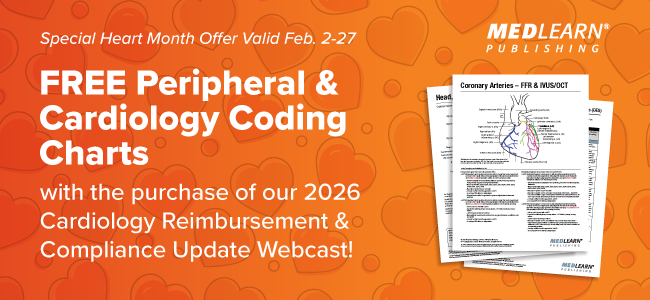Today, I’d like to briefly discuss the continuing practice of insurance payers denying specific diagnoses that a coding professional assigned as valid to report.
We know we have our ICD-10-CM Coding Conventions (classification system), the Official Guidelines for Coding and Reporting, and then we have the American Hospital Association (AHA) Coding Clinic for ICD-10-CM/PCS, which also provides official guidance. All of these should be followed by all coding professionals and even payers, no matter the healthcare setting.
There is a hierarchy to be followed between these three sources, and the first is the ICD-10-CM Coding Conventions, then the Official Guidelines for Coding and Reporting, and then the AHA Coding Clinic for ICD-10-CM/PCS. Accurate and compliant coding is a major goal of the coding professional.
There is ongoing guidance regarding clinical validation that includes the following: “a facility or a payer may require that a physician use a particular clinical definition or set of criteria when establishing a diagnosis, but that is a clinical issue outside the coding system.” This is playing havoc with clinicians who are taught the clinical criteria for diseases, that then the insurance payer turns upside-down.
Hospitals are experiencing increased medical record reviews that also include prebill reviews by payers/insurance companies. Payers are again removing specific diagnoses, for example the code for obesity and also morbid obesity and the associated body mass index (BMI) Z-code, even though it is documented in the medical record by the provider. But the payer rationale for the removal of these ICD-10-CM codes is due to the “absence of evaluation increasing the length of stay or nursing care.” Let’s take the second diagnosis (additional) reporting guideline, which requires specific criteria to be met for an inpatient encounter:
- Clinical evaluation;
- Therapeutic treatment;
- Diagnostic procedures;
- Extended length of hospital stay; or
- Increased nursing care and/or monitoring.
The Uniform Hospital Discharge Data Set (UHDDS) item #11-b defines other diagnoses as “all conditions that coexist at the time of admission, that develop subsequently, or that affect the treatment received and/or the length of stay. Diagnoses that relate to an earlier episode which have no bearing on the current hospital stay are to be excluded.”
Then we have AHA Coding Clinic for the third quarter of 2011, pages 3-4, which provides guidance to always code overweight, obesity, or morbid obesity:
“Individuals who are overweight, obese, or morbidly obese are at an increased risk for certain medical conditions when compared to persons of normal weight. Therefore, these conditions are always clinically significant and reportable when documented by the provider. In addition, the body mass index (BMI) code meets the requirement for clinical significance when obesity is documented.”
Another AHA Coding Clinic supported this guidance in the fourth quarter of 2018:
Q4 2018 Question: “If the provider documents obesity or morbid obesity in the history and physical and/or discharge summary only, without any additional documentation to support the clinical significance of this condition, can it be coded? There is no other documentation to support clinical significance for this condition, such as evaluation, treatment, increased monitoring, or increased nursing care, etc.
Answer: Obesity and morbid obesity are always clinically significant and reportable when documented by the provider. In addition, if documented, the body mass index (BMI) code may be coded in addition to the obesity or morbid obesity code.”
We all know there is a lot of clinical evidence that supports the premise that obesity and morbid obesity affect one’s health and health outcomes. Note that the above 2011 and 2018 AHA Coding Clinic guidance does not say that the criterion for an additional diagnosis has to be met.
And now the 2024 Official Guidelines have a wording revision (clinically significant) when it comes to the reporting of additional diagnoses:
For reporting purposes, the definition for “other diagnoses” is interpreted as additional clinically significant conditions that affect patient care in terms of requiring:
Clinical evaluation;
Therapeutic treatment;
Diagnostic procedures;
Extended length of hospital stay; or
Increased nursing care and/or monitoring.
So, how to address this? Do hospitals appeal these denial situations and others like it? Should AHA Coding Clinic provide some examples or some clarification to the 2024 language change? And how is that applied to prior guidance, such as for the coding of obesity and morbid obesity?
Let’s start communicating with the four cooperating parties regarding this situation. As a reminder to our readers, they are AHA, the American Health Information Management Association (AHIMA), the Centers for Medicare & Medicaid Services (CMS), and the National Center for Health Statistics (NCHS). Try writing to AHA Coding Clinic; share your experiences and examples of this particular coding situation, and share others you may have as well. You can submit your coding questions online, so it is easy.
We all need to get this issue resolved, and resolved quickly.
Providers should not remain silent about this issue, for the impact is great and far-reaching. The time is now to do the right thing!























